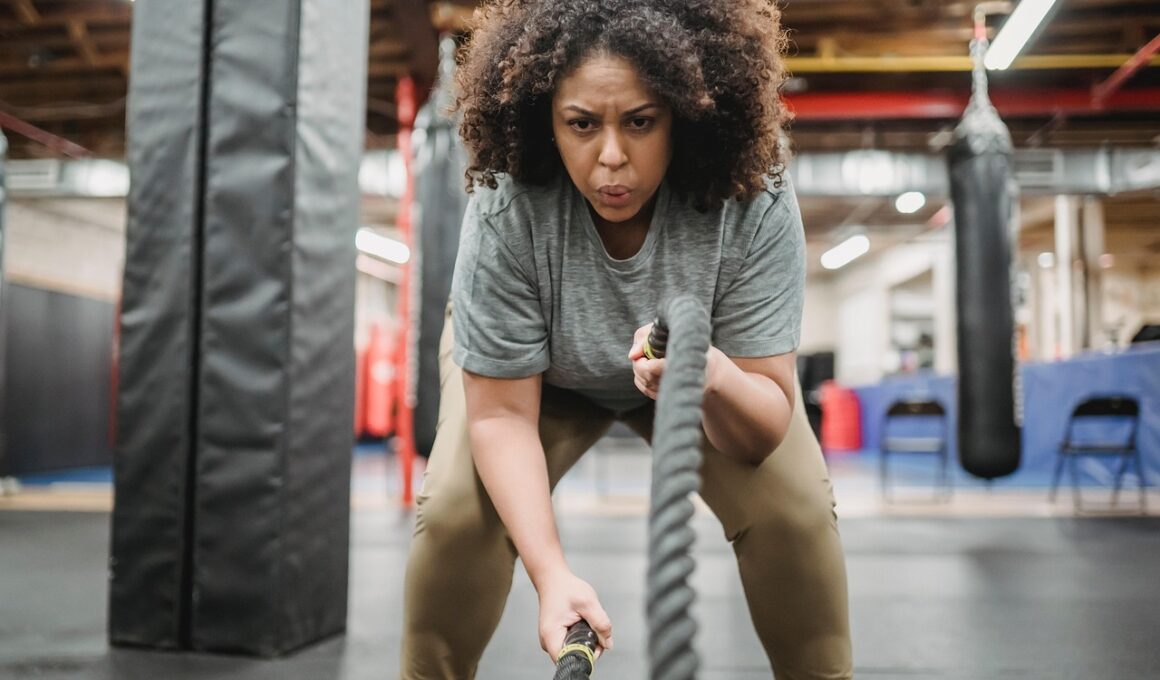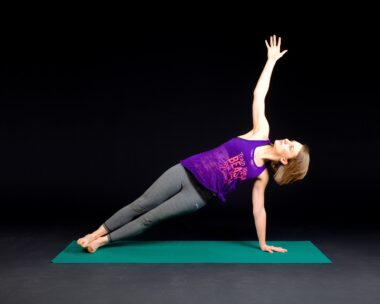The Impact of Yoga on Athlete Sleep Quality and Performance
Yoga has gained recognition among athletes as an effective tool for enhancing performance and improving overall sleep quality. Regular practice of yoga can lead to significant improvements in flexibility, strength, and balance, which are crucial attributes for athletes. Additionally, yoga promotes emotional well-being, aiding in relaxation and stress management. This enhancement in physical and mental state allows athletes to enter a more restorative sleep phase, essential for recovery. Athletes, often subject to rigorous training regimes, can experience difficulty falling and staying asleep due to physical strain and mental stress. Incorporating yoga into daily routines can facilitate a better transition into sleep, reducing overall anxiety levels. The deep breathing techniques practiced in yoga not only relax mind and body but positively influence the parasympathetic nervous system, promoting deeper sleep cycles. As a result, athletes can wake up more refreshed, ready for the day ahead. Moreover, sleep quality strongly correlates with athletic performance, linking restorative sleep to improved endurance, reaction times, and decision-making abilities. Thus, athletes are encouraged to explore yoga as a complementary practice to their training regimen.
The mental benefits of yoga extend beyond physical enhancements. Engaging in mindful practices during yoga not only elevates mood but also enhances focus. This focus is particularly critical during competition, where maintaining concentration is paramount for success. Regular practice helps in developing a routine that can stabilize emotional responses to stressors encountered during competitive events. Athletes often struggle with maintaining motivation and coping with performance anxiety, which can hinder optimal performance levels. A consistent yoga practice cultivates mental resilience, teaching athletes to manage their stress more effectively. Moreover, this practice encourages self-awareness, enabling athletes to better understand their bodies and limitations. As athletes become more in tune with their physical forms, they can adjust their training regimens better to promote health and performance. Additionally, yoga aids in injury prevention, allowing athletes to recognize tightness or discomfort before it becomes a more significant issue. With enhanced body awareness, athletes can modify their movements and techniques accordingly, potentially prolonging their careers in competitive sports. Furthermore, the holistic approach of yoga—integrating the mind, body, and spirit—fosters a balanced life both inside and outside of the athletic sphere.
Yoga Styles Beneficial for Athletes
Various styles of yoga can be particularly beneficial for athletes aiming to enhance their performance and overall well-being. Hatha yoga, focusing on basic postures, builds foundational strength and flexibility, crucial for preventing injuries. This style encompasses gentle stretches that can aid in muscle recovery while enhancing balance. Vinyasa yoga incorporates smoother transitions between poses, promoting cardiovascular endurance while also improving flexibility. The dynamic nature of Vinyasa can mimic the rigorous demands of sports training. Ashtanga yoga, characterized by its set sequences, offers a physical challenge that builds strength and stamina, aligning with the intense training of athletes. Restorative yoga provides a nurturing space for athletes to unwind and recuperate, especially during high-intensity training phases. This style emphasizes relaxation and recovery, allowing athletes to recharge physically and mentally. Yin yoga is another excellent practice focusing on deeper stretches, targeting connective tissues, enhancing joint flexibility, and fostering mental clarity. By selecting the appropriate yoga style, athletes can tailor their practices based on specific needs, ensuring not only improved performance but also better integration of mind and body during sports.
Furthermore, it is essential to integrate mindfulness into athletic training alongside yoga. Mindful awareness enables athletes to stay present within their performance, focusing on the techniques instead of external distractions. This focus results in better execution of skills during high-pressure situations. Research has demonstrated a direct correlation between mindfulness practice and enhancement in sports performance metrics. Techniques such as visualization, a key component of yoga, empower athletes to mentally rehearse actions and strategies before a competition. Moreover, these strategies can lead to improved confidence, reducing the likelihood of performance errors derived from stress or anxiety. Athletes can utilize yoga not only as a physical practice but as a mental training tool as well. The breathwork involved in yoga promotes relaxation and mental clarity, essential during critical moments in competitions. Through conscious breathing techniques, athletes learn to manage their heart rates, keeping them steady during peak performance times. Ultimately, developing a mindful approach through yoga not only supports improved physical performance but fosters psychological resilience amid competitive pressures. This multidimensional approach to training allows athletes to strive for excellence both physically and mentally.
Incorporating Yoga into Training Regimens
To effectively incorporate yoga into their training regimens, athletes should begin gradually and consistently. Setting aside specific times during the week for yoga practice can establish a routine that complements their existing training. Moreover, recognizing the need for balance is crucial, as excessive training without recovery can lead to burnout and injuries. Yoga can serve as an ideal recovery tool, aiding in muscle repair and enhancing flexibility while also fostering relaxation. Additionally, group classes can cultivate a community atmosphere that promotes motivation and encouragement amongst fellow athletes. Executing a home practice is also advisable, as it allows for adaptability around busy schedules. By leveraging online resources or videos, athletes can engage in guided sessions that fit their unique needs. Importantly, yoga should not feel like an additional burden but rather an enjoyable aspect of their training. Athletes should experiment with various styles and durations to find what resonates best with their needs. Incorporating yoga into their regimen can enhance their physical and mental capabilities, leading to improved performance and overall well-being.
Lastly, tracking the benefits of yoga practice will reinforce the positive outcomes it delivers. Athletes might consider maintaining a journal, noting down experiences before and after their yoga sessions. By reflecting on changes in sleep quality, recovery times, and overall mood, athletes become more invested in their yoga practice. Additionally, sharing insights with coaches or training partners can foster accountability and collaborative growth within their training environment. As athletes witness tangible improvements in their overall health, motivations to maintain a regular practice are likely to increase. Over time, consistent yoga practice can lead to lasting improvements not just in athletic performance but also in psychological resilience and emotional stability. The life skills developed through yoga may extend beyond athletic endeavors, positively impacting other areas of life as well. Hence, athletes are encouraged to embrace yoga as an essential partner in their journey toward peak performance and well-being. Ultimately, the relationship between quality sleep and athletic performance becomes increasingly important, illustrating the profound impact of incorporating yoga into daily routines.
Conclusion: The Holistic Approach of Yoga
In conclusion, the inclusion of yoga in an athlete’s training regimen represents a holistic approach to optimizing performance and ensuring well-being. The interplay between sleep, mental focus, and physical capabilities demonstrates a multifaceted connection that yoga serves to bridge. As athletes expand their training practices to encompass yoga, they unlock new pathways toward enhanced awareness and resilience. The integration of body and mind most notably manifests in improved sleep quality, leading to optimal performance outcomes during competitions. The ability to harness breath, focus, and relaxation empowers athletes to cultivate stronger performance habits, ultimately promoting longevity in their sports careers. Individual athletes may find immense personal growth through this process as they navigate their careers and personal lives. The skills learned through yoga—adaptability, mindfulness, and resilience—are invaluable. Thus, yoga serves not only as a physical practice but as a fundamental element of an athlete’s overarching training framework. As the world of sports continues to evolve, the practices that athletes engage in should reflect this growth. Embracing yoga signifies a forward-thinking approach to performance enhancement and mental fortitude.
Incorporating yoga into the lives of athletes offers a myriad of benefits. From physical improvements such as flexibility and strength to mental enhancements like focus and relaxation, yoga plays a vital role in promoting overall well-being. The ability to practice mindful movements in a controlled environment fosters an appreciation for the body and its capabilities. Given the ever-growing emphasis on holistic health in the athletic community, combining traditional training with yoga isn’t just a trend; it is a lifestyle. The attention to mental health discussed in the context of yoga underscores its importance in an athlete’s routine. As athletes continue to pursue greater heights in their performance, integrating yoga aids not just in achieving goals but ensuring sustainable success in their endeavors, enriching lives beyond the sports arena. Thus, the evidence supporting yoga’s impact becomes increasingly indisputable. With consistent practice, athletes embark on an enlightening journey, realizing the transformative effects this ancient practice can have. In this modern athletic landscape, yoga stands tall as a supportive partner to achieve remarkable feats while maintaining health and well-being.





